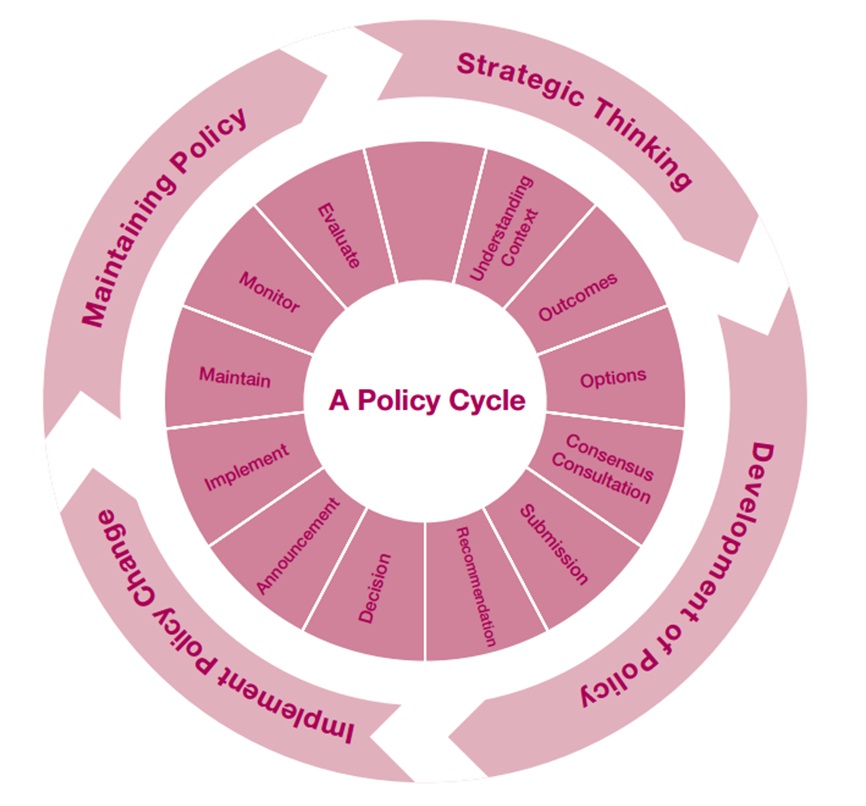Policy Development
The process of developing public policy is an activity that generally involves research, analysis, consultation and synthesis of information to produce recommendations. It should involve an evaluation of options against a set of criteria used to assess each option. An effective policy process is one that is generally characterized by the following five attributes:
- Issue Identification
- Issue Analysis
- Generating Solutions
- Consultation
- Performance Monitoring
An effective policy process is one that includes two-way communication between policy leaders/managers and policy analysts. There are two critical ingredients that can assist the process not only of identifying potential solutions but as well, the process of evaluating those potential solutions:
- having a conceptual framework that will guide the process of generating and assessing various potential solutions to the problem; and
- having a clear sense of the desired outcomes or goals that the selected policy is expected to achieve.
A conceptual framework is the underpinning that should drive the selection of policy options to be assessed. Such a framework should consist of:
- the main working parameters (i.e., the “givens” or the limitations within which you are working);
- key principles/values; – governmental regulations or goals and priorities.
Policies exist either to ameliorate certain situations or to prevent the occurrence of certain outcomes. The root cause(s) of a policy provides the seeds of potential indicators by which to measure progress in achieving the policy objective. Performance measurement should not be handled as an after thought to the policy development process; it needs to be an integral part of the process because reflecting on performance measurement at the beginning also helps in refining one’s thinking with respect to the expected outcomes. So beyond determining whether the proposed policies will be evaluated, you need to also give some thought (as part of the policy development process) to what the indicators might be and whether data sources exist and how data collection might be handled. It is also important when developing policy to ensure that it is sufficiently robust to deal with change in the outside world, whether predicted or unpredictable.

In summary, policy-making needs to be forward looking; outward looking; innovative, flexible and creative; evidence-based; inclusive; joined up; to learn lessons from experience; to be communicated effectively; and to incorporate ongoing evaluation and review.


